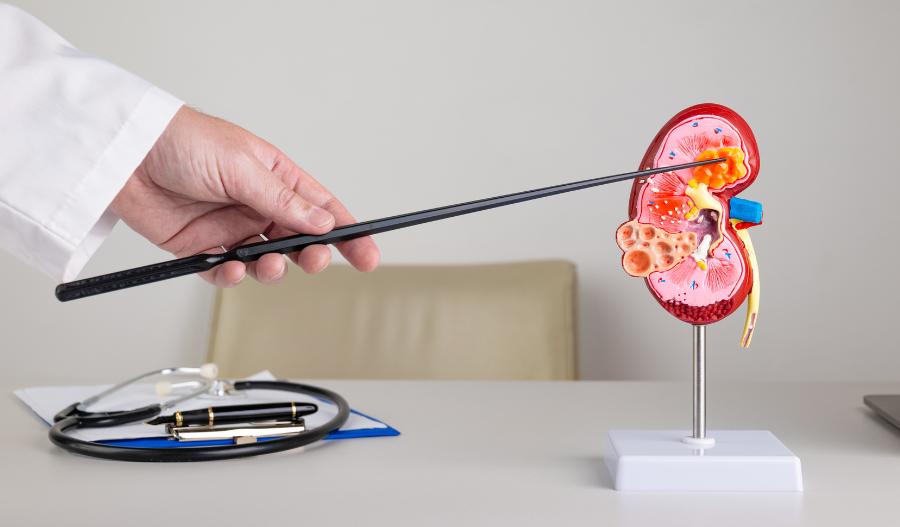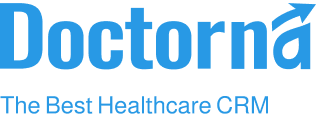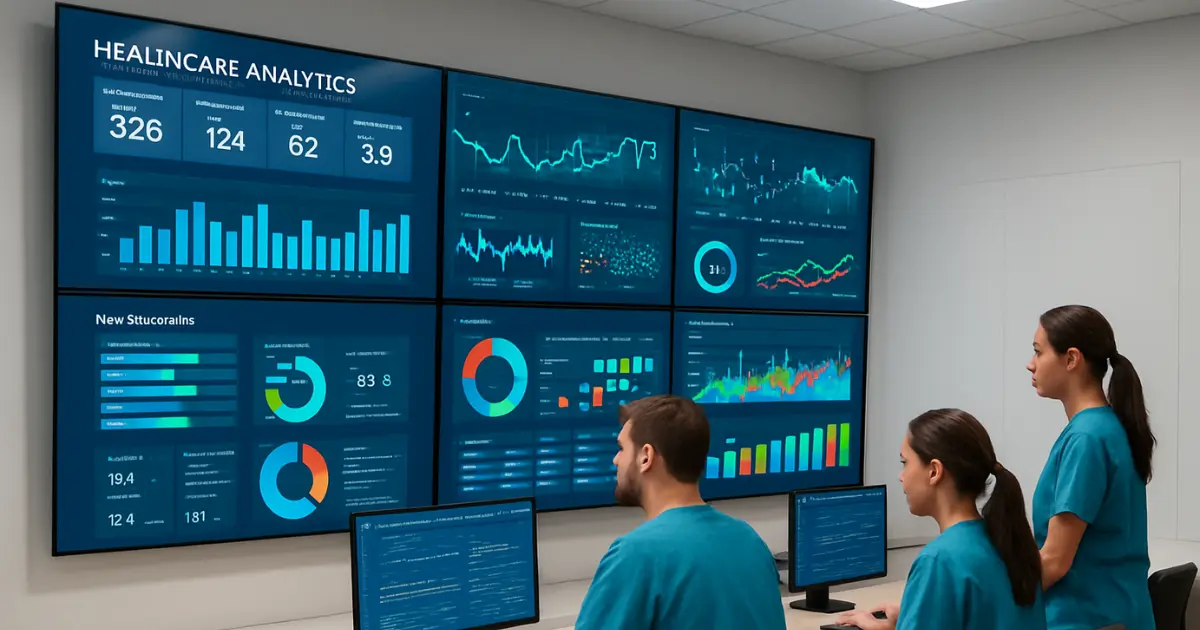For Nephrologists in Dubai, you’re managing a patient population with complex, long-term needs: CKD progression tracking, dialysis schedules, transplant follow-up, electrolyte and medication safety, and many comorbidities (diabetes, hypertension, cardiovascular disease). These demands make efficient, secure, and patient-centric clinic systems essential — and that’s what Doctorna is built for.
Challenges Nephrologists in Dubai Face
- High and rising burden of kidney disease: Chronic kidney disease (CKD) affects a large and growing population worldwide — estimates put it at >10% of people globally, with hundreds of millions affected. That global burden translates into increasing numbers of patients presenting to nephrology clinics and dialysis centers.
- Large dialysis & transplant workloads: End-stage renal disease (ESRD) and dialysis create sustained demand for clinic resources: in the UAE recent government data reported an ESRD prevalence figure used for planning and hundreds of thousands of dialysis visits across health facilities — demonstrating the scale of ongoing care needs.
- Complex, multi-step care pathways: Kidney care is not a single visit: it includes repeated labs, imaging, medication adjustments, dialysis access management, urgent admission risk management, and transplant evaluation and long-term follow up. Coordinating all of this across staff and departments is operationally heavy.
- High-risk medication and lab safety requirements: Nephrology patients frequently take renally-adjusted medications and face life-threatening electrolyte shifts. Clinics need fast alerts, history-aware prescribing, and easy access to the latest labs to avoid harm.
- Scheduling & capacity: Dialysis centres and in-clinic procedures require tightly scheduled slots (often recurring), and cancellations/no-shows can create wasted capacity. Managing recurring schedules, staff rostering and machine/room utilization is critical to clinic revenue and patient care.
- Fragmented data & multi-team coordination: Patients often see nephrologists, cardiologists, diabetologists and transplant surgeons; without shared, structured records, test results and notes get duplicated or missed. This leads to care gaps and poor patient experience.
- Costs, insurance and regulatory complexity: Nephrology is resource intensive. In the Middle East region the costs of kidney replacement therapies are high and vary by country; UAE in particular has higher per-patient costs for certain KRT modalities, which increases the administrative and billing burden.
- Workforce & capacity constraints: Regional reports highlight variations and shortages in the nephrology workforce and in supporting specialties (dialysis nurses, transplant teams). That makes operational efficiency and good digital workflows even more important.
- Rising local demand and transplant pressure: Local reporting shows kidney disease and transplant demand increasing in the UAE — more patients require long-term specialist follow-up and transplant programmes. Clinics must scale while maintaining safety and continuity of care.
These layered clinical, operational and regulatory challenges make a purpose-built clinic system — one that goes beyond basic EMR — essential for modern nephrology practices.
Why Nephrologists in Dubai Need a Healthcare CRM
A healthcare CRM complements EMR/clinical systems by focusing on the patient journey and clinic operations:
- Longitudinal patient tracking: stage-based CKD follow up.
- Active care orchestration: recurring appointment engines for dialysis, PD exchanges, or transplant clinic reviews.
- Patient communication & adherence: automated, traceable messages (WhatsApp/SMS/email) for labs, med reminders and urgent alerts.
- Multidisciplinary coordination: shared care plans, referral tracking, and secure inter-provider messaging.
- Risk & safety workflows: lab threshold alerts, medication safety flags for renal dosing.
- Analytics for quality improvement: no-show rates, dialysis utilization, transplant wait-list metrics and outcomes dashboards.
A CRM is the glue that keeps all of these non-clinical but care-critical workflows working smoothly.
Key Benefits for Nephrologists in Dubai

- Reduce clinical risk with lab alerts and medication checks.
- Maximize dialysis capacity via smarter scheduling and automated wait-list management.
- Improve patient outcomes through adherence reminders and standardized follow-up.
- Reduce admin overhead so clinicians spend more time on patient care.
- Faster, cleaner billing & claims for dialysis sessions, procedures and transplant services.
- Actionable reporting to support audits, accreditation and performance improvements.
Why Nephrologists in Dubai Choose Doctorna CRM
Doctorna is built with regional realities in mind and configured for nephrology workflows:
- Local compliance & security: Cloud architecture and processes aligned with UAE healthcare regulations and data-security expectations.
- Arabic + English support: Usable across Dubai’s multilingual clinical teams and patient populations.
- WhatsApp & SMS integration: Patients in Dubai commonly use WhatsApp — Doctorna supports automated, compliant reminders and two-way messaging.
- Multi-branch & multi-facility support: Centralized records when nephrologists cover multiple clinics or when patients shift between dialysis centres.
- Dialysis & transplant-aware features: Recurring session scheduling, access tracking, and transplant follow-up modules tailored to nephrology needs.
- Fast onboarding & local support: Implementation teams experienced with UAE clinics to reduce downtime.
How Doctorna Supports Nephrologists in Dubai

- Patient intake & onboarding: Digital intake forms for CKD risk factors, comorbidities, prior dialysis/transplant history and insurance; quick consent capture.
- Clinical tracking & dashboards: eGFR/creatinine trend graphs, proteinuria/ACR history, color-coded CKD stage flags and progression alerts.
- Lab integration & safety alerts: Auto-import lab results, auto-flag critical labs and push immediate alerts to clinicians/staff.
- Dialysis & session management: Schedule recurring HD/PD sessions, manage machine/room allocation, track dialysis adequacy, and logging of access issues.
- Vascular access & procedure management: Track fistula/graft creation dates, maturation checks, AV access complications and notify surgeons/IR teams.
- Transplant coordination & registry support: Maintain transplant candidate lists, document pre-op checklists, immunosuppression plans, and long-term follow-up schedules.
- Medication reconciliation & renal dosing support: Drug lists with renal dosing guidance and alerts for dose adjustments.
- Teleconsult & patient messaging: Secure teleconsult features and two-way WhatsApp/SMS for test reminders, medication counseling, pre/post-op instructions.
- Billing & claims: Session-level invoicing (HD/PD), bundle billing for procedures and transplant care, claims tracking for UAE insurers.
- Quality & analytics: Dashboards on no-show rate, dialysis utilization, transplant referral-to-listing time, complication rates, revenue per session.
- Multi-team collaboration: Secure notes sharing with cardiology, diabetology, dialysis nurses, pharmacists and transplant teams.
- Data exports & registries: Exportable data to support local CKD/dialysis registries or audit submissions.
Ready to Transform Your Practice in Dubai?
If you’re one of the nephrologists in Dubai running a clinic, dialysis centre, or transplant programme in Dubai, Doctorna CRM gives you the tools to reduce clinical risk, improve patient experience, and run a more efficient service.
Request a Free Demo — we’ll tailor a short walkthrough showing how Doctorna supports nephrologists in Dubai and across.
FAQs
1. Is Doctorna secure and compliant with UAE regulations?
Yes — Doctorna uses encrypted data storage and role-based access. Implementations in UAE clinics include configurations to meet local regulatory requirements; we can share our security & compliance whitepaper during the demo.
2. Can Doctorna import labs from our existing lab system or EMR?
Yes — Doctorna supports common lab integrations (API/HL7) and can ingest lab results so trends and alerts appear automatically in the patient timeline.
3. Will Doctorna manage dialysis scheduling (recurring sessions) and capacity planning?
Absolutely — the system is designed for recurring session booking, cancellation handling, wait-lists, and utilization reports so you can optimize machines and staff.
4. How does the CRM help with medication safety in renal patients?
Doctorna flags medications that require renal dose adjustment, records past dosing changes, and integrates lab results to reduce medication errors.
5. Can Doctorna support transplant workflows?
Yes — transplant candidate lists, pre-op checklists, immunosuppression plans, and post-transplant follow-ups are supported. You can also generate reports for transplant program audits.
6. How long does implementation take?
Typical clinic deployments (single location, standard workflows) can be live in weeks; multi-branch or heavily customized implementations may take longer. We provide a project plan during onboarding.
7. Do you offer training and local support?
Yes — Doctorna includes staff training sessions, implementation support, and UAE-based support channels.
8. Can patients message the clinic via WhatsApp and is this compliant?
Doctorna integrates with enterprise WhatsApp APIs in a way designed to protect patient privacy (message logging, consent, and templates). We guide clinics on compliant configurations.
9. What analytics can I get out of Doctorna?
Dashboards for CKD progression, dialysis utilization, no-show rates, revenue per treatment type, and clinical outcomes — all exportable for audits or quality improvement.
10. How will Doctorna improve clinical outcomes?
By reducing missed labs/appointments, enabling early identification of eGFR decline, improving medication safety, and ensuring coordinated follow-up, Doctorna helps clinicians act earlier — translating to better long-term outcomes.







